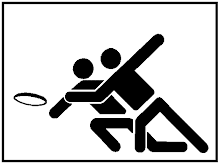Jealousy, Regret and strikingly similar personalities provide a catalyst for family conflict in Eugene O’Neil’s play Long Day’s Journey into Night. The sons of the family, Jamie and Edmund, both live despicable lives that cause their parents great angst only to instigate more conflict between father and sons. While Edmund has a glimmer of hope ahead of him due to his more educated view of the world, Jamie and his father James bicker and dismantle each others self worth because they are almost mirror images of one another. James’s life was full of promise but his quest for the easiest path has led him to become a selfish cheapskate who has little interest in legitimate and long lasting solutions to the problems that engulf his life. The same can be said for his son Jamie who too looks for easy ways out and has no regard for his future by spending every night drunk with his friends and living like a leech in his parent’s home. The father and son duo of James and Jamie are a destructive force in the Tyrone household, one that will feed off itself perpetuating the pain and regret for the rest of the family.
Jamie was once a prominent actor who sold out for an easy living. Jamie was similar in the fact that, despite his lack of talents, he still looks for the easy way out. One example of his cheapness is when he lives out his destructive drunken lifestyle at the brothels where he sleeps with the fat women. He says he does it out of the kindness of his own heart but one can suspect that he does it because they are the easiest and cheapness to get a hold of, something his cheap father might be proud of. The largess parallel one can draw between Jamie and his father James is their odd and hypocritical relationships with their brother/son Edmund. They both state that they love Edmund, and at some points in the play they both show a caring side while at other points they promote Edmunds consumption. For James and Jamie Edmund is just as much a comfort tool as a weapon and the disturbing part is they both know it.
James: “…I’ll be waiting to welcome you with that “my old pal stuff”, and give you a glad hand, and at the first good chance I get stab you in the back.”
The parallels between father and son are so obvious, especially when James and Jamie fight at the end of the play. James complains to Edmund stating
“A sweet spectacle for me! My first-born, who I hoped would bear my name in honor and dignity, who showed such brilliant promise!”
James too showed great promise but he failed just like Jamie has. But the realization of the likeness of Father and Son strikes James hard when Jamie quotes Rossetti. “Look at my face. My name is Might-Have-Been; I am also called No More, Too Late, Farewell.”
And James replies, “I’m well aware of that, and God knows I don’t want to look at it.”
Jamie has become such a mirror image of James that James refuses to acknowledge it. The same can be said about Jamie who calls James Gaspard, which helps in separating him from his father due to their closeness in name.
“He answers with vicious mockery by naming a play that highlights Tyrone's barren philosophy. To read this only as a dig at Tyrone's tightness with money is to miss the other part of the joke suggesting that Erckmann-Chatrain's old French melodrama (made famous in English by Henry Irving) is the root of Tyrone's wisdom. Albert Wertheim points out that Jamie calls Tyrone Gaspard seven times in the act, although only once to his face. Along with period reasons for bringing in "The Bells," and Tyrone's obvious cheapness, he suggests that it is a crack about how far the father has come from his days playing Shakespeare, and I think he is right.”
The two have become one in the same, where each of their problems can equally be blamed on one another as themselves. They both live as actors in the realm of life and reality only to yell and berate one another as if they have forgotten their lines and positions. They find comfort in the short escape of alcohol and the goodness Edmund brought to the family, but then use both family and drink as weapons to destroy one another. At the end of the play the relationship has essentially gone nowhere and the two despise each other, while hating themselves for it.
Subscribe to:
Post Comments (Atom)

1 comment:
An interesting piece that draws out the conflict through textual evidence. Thank you. You really do a good job of showing how similar the two are to one another. Why do you think O'neill wanted to make them so similar. What point can we find in the similarity of the two men? - elmeer
Post a Comment